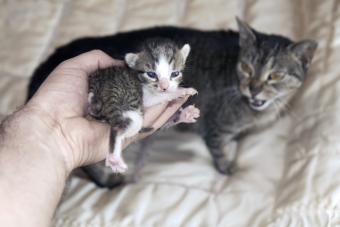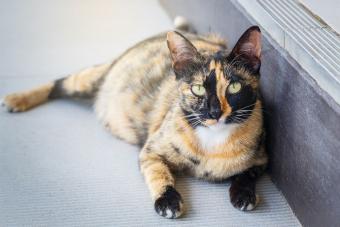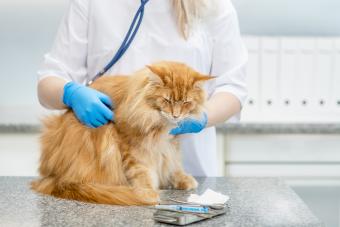
Sometimes, a mother cat will behave strangely after the kittens have gone to new homes, and it's natural to wonder whether she misses her kittens. Learn the truth behind these behaviors so you can identify what your cat may be trying to communicate to you as well as the best time to separate the mother cat and her litter.
When the Kittens Leave
The best time for kittens to leave mom is around 12 weeks. At that time, both the mom cat and the kittens are ready to part ways. However, sometimes after the last kitten is gone, the mom cat will wander around the house crying. But is she really looking for them? And if so, can you help?
These are common concerns for all good pet owners. You did the right thing by finding the kittens new homes and the reason for the mom's reaction might not be what you think.

Mom Cat Crying
Helping a pregnant cat with her kittens is definitely an act of kindness. This love for your cat may cause you to worry unnecessarily if she seems upset to have the kittens gone. While your cat may be missing her kittens, it's more likely that she has come back into heat. It's common for a female cat to go back into heat about one to four weeks after giving birth. Cats typically cycle every two weeks, and they tend to do a lot of calling or "crying" during their heat period.
If she's truly missing the kittens, she may try to exhibit some odd behavior towards your other pets or even sometimes stuffed animals or pillows. You'll need to watch closely to see how she treats other animals in the home and intervene if necessary. You might even want to try getting her mind off things by giving her a couple of new toys to play with. A little mental stimulation goes a long way in reviving the spirit.
How Long Does it Take for a Mother Cat to Forget Her Kittens?
While it may feel like a mother cat will be upset that her kittens will be taken away, cats don't think the same way people do. It's natural for a mother cat to begin weaning her kittens around four to five weeks of age, and they'll be fully weaned around 10 or 12 weeks. It's the goal of the mother cat to teach the kittens to become independent, at which point her bond to them will weaken. In fact, it's not uncommon for the mother cat to become uncomfortable with the presence of her kittens after they are weaned and growl at them if they remain for too long.

- In general, once the kittens are able to go to a new home at age 12 weeks, you may notice your mother cat meowing and showing "seeking" behavior for the missing kittens, but at most this will last a few days and then she'll be back to normal.
- If kittens are removed before the age of 10 weeks and before they are fully weaned, this behavior from the mother cat may persist a bit longer, but not by much as she's instinctually programmed to leave her litter and cats do not "remember" or "grieve" for kittens in the way that a human parent would.
- Depending on the circumstances, it's natural for a mother cat to reject her litter entirely even when they're newborn. This can happen if the mother senses that one or more kittens is sick or unhealthy, if she is suffering from painful mastitis or life-threatening eclampsia, or if the litter is too large for her to nurse. Some cats new to motherhood may also reject their kittens for no apparent reason, though the underlying cause is usually stress and anxiety.
Consider Stopping the Cycle
The best course of action would be to have your female cat spayed as soon as possible. Now that the kittens are gone, it is the perfect time to have the surgery. This will help prevent unplanned future pregnancy and contribute to keeping the homeless cat population down.







